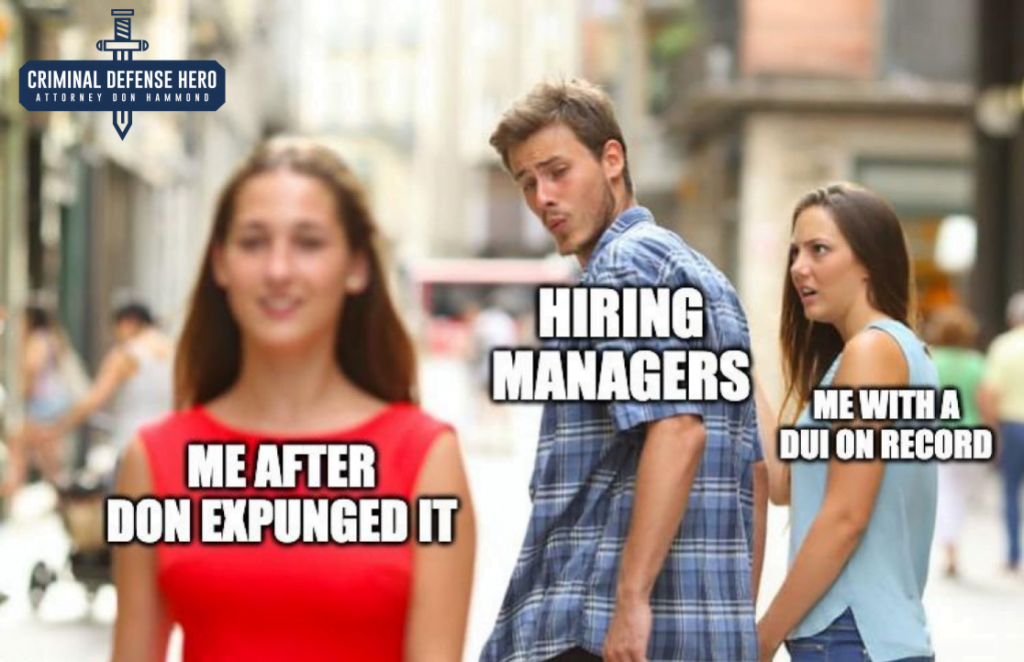
How to get a DUI expungement in California
Having a DUI criminal record can negatively impact many potential opportunities that may come our way in life. The good news is, the state of California gives convicted offenders an opportunity to make it all erase their criminal record through the expungement process. Expungement is covered under the California PC 1203.4. Getting one simply means getting a do-over by “erasing” applicable convictions. We’ve written a lot about criminal record expungement (Getting an Expungement, Felony Expungement, and 5 Reasons to Expunge Now!), but this time we want you to know exactly how, STEP BY STEP, you can make a fresh start with a DUI record expungement.
Benefits of Getting an Expungement
Some of the benefits of erasing your DUI criminal record include:
· You have the option to privacy and do not need to reveal your criminal record to any potential employers
· Nobody else has to know about your rap sheet, including friends and family
· You increase your eligibility for other professional licenses.
· You can change your immigrant status much more easily, and
· You will no longer feel stigmatized and anxious during background checks
How does it Work?
Now that you know WHY you should get your DUI record expunged, we would like to tell you HOW to initiate the process. Although California typically does not require offenders seeking expungement to have legal representation for the process, an experienced lawyer can help smooth things over and make things clear. Hence we recommend contacting a great DUI lawyer to help your start.
· Do You Qualify?
The first thing you need to do to commence your expungement process is to check whether you qualify for an expungement. Fortunately, California gives an expungement option unlike other states (like Illinois) that only seal the arrest records. DUI expungement in California is available for anyone convicted of either a California felony or misdemeanor. Other eligibility requirements include:
1. Completing all other terms of your sentence, including any probationary sentence
2. Finishing the mandatory one year period beginning from the time of your conviction if you were not placed on probation
3. You have not served any state prison time as a result of your DUI offense
4. There are no charges pending for any other criminal offense
It is best to check for eligibility before going too far with the process in case you have any doubts.
· Obtain A Copy of Your Criminal Record
Some Jurisdictions have gone digital and your records may be only a click away. However, you may want to visit the courthouse where your case was heard just to be sure. Information you should get include: the case number/ docket number, date of conviction, code name and number for the violation, the verdict, and how you served your sentence, if any. This information may come in the form of a rap sheet or certified disposition records which can also be available at the Attorney General’s Bureau of Criminal Information.
· Access and Complete the Appropriate Forms
If you have no legal representation, you can obtain the Petition for Dismissal forms, also known as the CR-180 form, from any legal libraries and websites including the state courts. However, civilians may not know which form to access specifically, which is where lawyers come in handy. In any case, you could always visit your courthouse and request the correct form if you are working on a tight budget.
· Attach Additional Documents
The process of petitioning for dismissal is usually the same, but some courts may require lengthy additional information such as declaration forms, an affidavit from other individuals willing to vouch for your expungement, and any other documents which can be used to support your request.
· Remember to send a Copy to the Prosecution
Before filing the duly filled forms and attached documents, remember to send a copy to the prosecution or the District attorney’s office. We recommend that you call first before doing so determine their preferred method of service. Hopefully, your prosecutor will not object to your expungement as this may prove to be another thorn in your side and lengthy court hearings. Hopefully, the prosecutor doesn’t object and he will sign the form and send it back, which may serve as further support.
If the court grants you the petition, congratulations! You now have a clean record. The court should notify relevant agencies of the expungement, but because of glitches in the system or a simple backlog, they might forget. You can send a copy of the court order to the Attorney General’s office, the arresting police department, and the DMV just to be sure. Better safe than sorry!
What if I get another DUI charge in the Future?
An expungement typically means getting a clean slate, but any future DUI convictions will count as subsequent convictions with applicable penalties. That is, you will face subsequent convictions, either 2nd or 3rd with the court imposing its respective sentences.
An expungement is a great way to break through the stigma and negativity that comes with having a bad criminal record. At Criminal Defense Hero, we believe in second chances and we take our DUI expungement cases very seriously. Let’s us help you through this messy situation and get your life back on track. We don’t advocate that you take on the process alone. The process is complicated and it is easy to make a lot of small human errors that may cost you more time and money. Please do not hesitate to contact us for a chance to live a DUI-free life once again.











